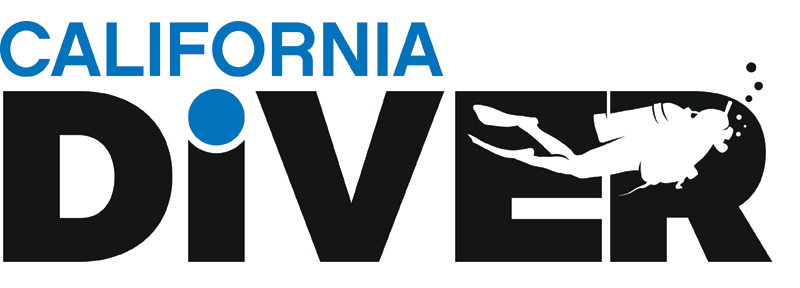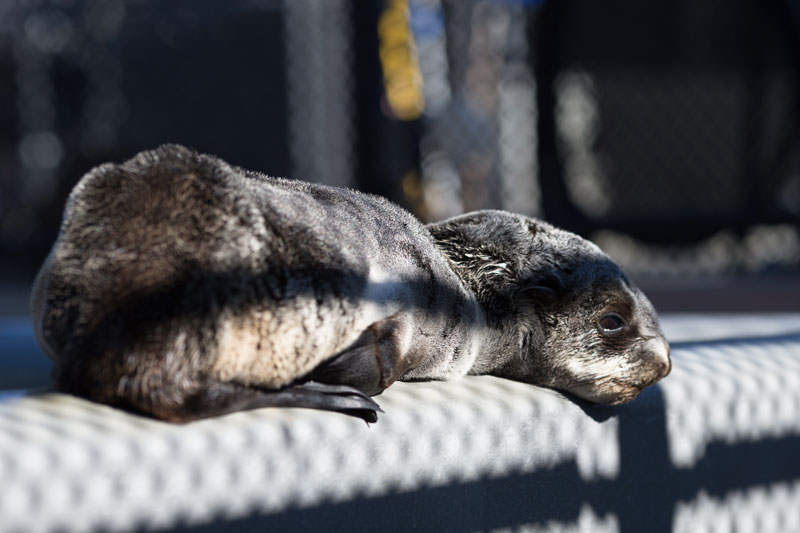The Marine Mammal Center breaks nearly every record due to record strandings of northern fur seals, California sea lions and Guadalupe fur seals from warm ocean waters.
2015 has been a year like no other for The Marine Mammal Center—with 6 weeks still remaining, the Center has already rescued more seals and sea lions than ever before in its 40-year history. Now the Center is experiencing an unexpected influx of more than 80 northern fur seal pups—and more coming in every day.
All told, the Center has rescued more than 1,747 seals and sea lions so far this year—breaking nearly every record in its 40-year history and, more importantly, raising alarming questions about the health of our ocean.
Most of those questions surround the climatological phenomena dubbed “the blob,” an unusually large and persistent area of warm water off the Pacific coast. These warmer waters, which some scientists also link to global climate change, seem to be affecting distributions of fish, causing marine mammals like sea lions and fur seals to have a harder time finding food close to their typical habitat range.
And with an unusually strong El Niño taking shape in the equatorial Pacific, conditions are not likely to change much any time soon. The warm waters El Niño is expected to bring will simply reinforce or extend the dramatic effects seen to date.
“Northern fur seals are just the latest victims of the warm waters off of our coast,” says Dr. Shawn Johnson, Director of Veterinary Science at the Center. “And as these conditions persist, we’re increasingly concerned about what this could mean for the next generation of sea lion pups too.”
At stake are endangered populations of marine mammals, such as the Guadalupe fur seal, as well as otherwise healthy populations, like the California sea lions, which have sustained their third year of elevated strandings—each worse than the year before.
The record numbers of stranded marine mammals the Center has seen all year indicates there is an urgent need for more science to help us all better understand what’s going on off the coast of California and how large-scale human impacts, such as overfishing and pollution, may be affecting the health of these animals and their ocean environment as well.
NORTHERN FUR SEALS
The record number of northern fur seal pups in the Center’s care right now are about half the size they should be at this age. Similar to the California sea lions earlier this year, experts think that the pups’ stunted growth may have started on the islands—if mother fur seals were having trouble finding enough fish nearby to feed themselves, they may not have been able to provide enough milk to their pups. When these smaller pups left the islands, they might not have been strong enough to hunt for fish on their own, exacerbating their malnutrition even further.
“Northern fur seals are smaller, furrier and feistier than the California sea lion pups we rescued earlier this year,” says Dr. Shawn Johnson, Director of Veterinary Science at The Marine Mammal Center. “But otherwise the scene here is the same—our rescue trucks continue to arrive day after day with more starving pups in need of our care.”
(You can read more about the pups currently in the Center’s care by clicking here.)
2015 RECORDS SHATTERED
With six weeks remaining in 2015, the Center has already shattered nearly every record in its 40-year history. All numbers as of 11/20/2015.
- By February, the Center rescued a record number of California sea lion pups. The Center has rescued a total of 1,344 California sea lions in 2015, just shy of the previous 2009 record of 1,356 California sea lions.
- By April, regular pupping season was in full swing, leading to a record number of patients onsite at one time at the Center’s main hospital in Sausalito: 291
- By June, the Center rescued 31 Guadalupe fur seals, compared to previous record of 5 in 2003
- By October, the total rescue number broke the previous record of 1,631 in 2009. The total rescue number is now 1,747
- By November, the Center rescued 85 northern fur seal pups, more than double our previous record in 2006, with more arriving every day
- The Center has also seen a record number of volunteer hours: 149,433, a value of over $4,000,000
To learn more about the Marin Mammal Center in Sausalito, please visit their site by clicking here.
.



